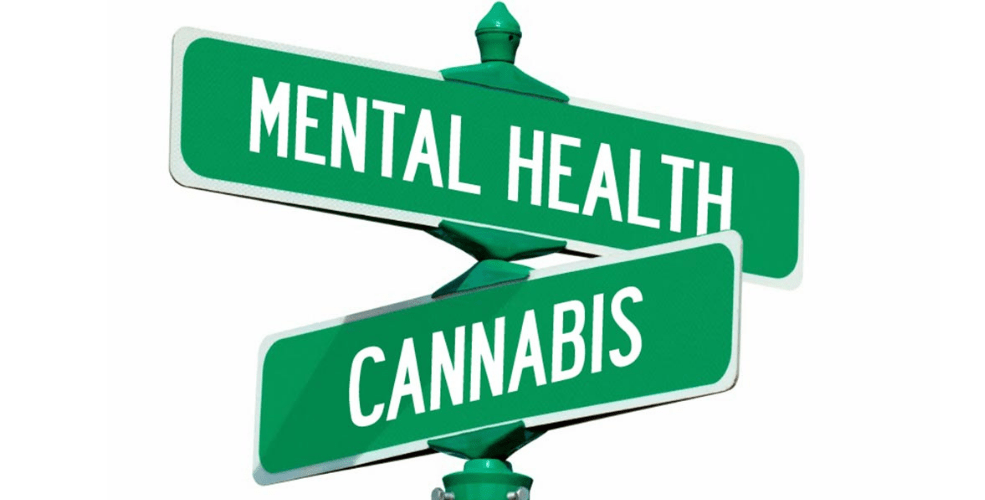
Does legalizing cannabis improve mental health? – Cannabis | weed | marijuana
Does legalizing cannabis improve mental health? According to a recent study published in Health Economics, the answer is probably yes.
The study found that legalized cannabis led to a decrease in psychiatric treatment admissions. But is that just a connection?
Many studies suggest that cannabis worsens or even causes mental health problems. Often these studies are observational studies that are not reproducible and therefore only reflect the opinions of certain researchers with the “Science™” label.
If the study suggests that cannabis worsens mental health, the researchers call for restrictions to protect people from themselves.
This study suggests the opposite. Legalizing cannabis could improve mental health, and we can see this in fewer admissions for mental health treatment.
But as much as we want to praise this study, its methodology is questionable, just as it would be if the results were negative for cannabis legalization.
So without further ado: How scientifically sound is the claim that legalizing cannabis can improve mental health?
Details about the study
Although many studies have shown a connection between mental health and cannabis, very few have looked at the laws and legalization of cannabis and its potential impact on mental health.
Alberto Ortega, a researcher at Indiana University, wanted to investigate this possible connection.
Ortega examined Uniform Reporting System data on admissions to state mental health facilities. The age of the patients varied between 13 and 65 years.
Ortega collected data from 2007 to 2019, when ten states legalized cannabis. After Ortega analyzed it, he noticed a pattern. He found that a decline in psychiatric admissions could be linked to the legalization of cannabis in each state.
Ortega controlled for other factors, such as access to Medicaid and pre-existing medical cannabis programs. He also took into account demographic characteristics such as age and socioeconomic background.
Public health advocates demand that we “think of the children” when legalizing cannabis. But states are seeing a decline in treatment admissions among young people, according to Ortega’s study.
The results are reasonably consistent across all populations except race. Mental health admissions fell by 27% for Black people, compared to 9% for White people.
The study recommends further research into why some races see fewer admissions than others. But in the meantime, whenever the public health community links cannabis to poor mental health, you can simply accuse it of racism.
Issues With Cannabis Legalization Improve Mental Health Study

Of course, cannabis advocates can do the same, just as the anti-cannabis lobby uses bad research to reach their conclusions.
Is this study “Legalizing cannabis improves mental health” under scrutiny?
First, it’s important to find out what the study says. Ortega does not claim that legalizing cannabis improves mental health. He says data suggests legalizing cannabis leads to lower admissions to treatment centers.
It could be that people’s mental health is still poor but they are self-medicating with cannabis and therefore do not feel the need to go to a formal treatment center. One could argue that this self-medication harms them in the long run.
Ortega writes that his study “targets treatment admissions specifically and should not be equated with improvement or deterioration in mental health.”
Second, this study examines large-scale trends using population-level data. While Ortega uses robust research methods to establish causality, there is a limitation to observational data and unknown confounding variables.
All this study can say is that there is a link between lower psychiatric hospitalization rates and cannabis legalization. Fortunately, the author advises caution in interpreting these results and developing guidelines based on this single study.
But of course public health leaders will interpret it to mean that people stay home and “self-medicate” rather than seeking professional help (e.g. a cocktail of pharmaceuticals they might as well call Soma) .
What is mental health anyway?

Ortega’s study takes the standard definition of mental health and begins examining it there. But the question “Can legalizing cannabis improve mental health?” assumes that mental health is an objective phenomenon, like a healthy heart or brain.
Cancer, for example, is a disease of the body. This is physical and objective.
Anxiety or depression are “mental illnesses”. And it’s entirely appropriate to ditch the “disease” model and transform the metaphysics into a narrative that better suits you.
Thomas Szasz was a 20th-century psychologist who sharply criticized this overreliance on “mental health.” He was particularly appalled by the profitable pharmaceutical industry that claimed to solve or cure mental “illnesses.”
Szasz believed we should view psychological distress as personal problems, conflicts, and responsibilities, rather than as “mental illnesses.”
He suggested helping individuals understand and address their problems through advice and support. And to recognize that some behaviors are only considered unconventional or abnormal by society’s standards.
And who cares what society thinks?
Szasz emphasized the freedom and responsibility of the individual. His critics, who have conquered all major psychological institutions, advocate the “brain disease” theory of psychological stress.
So will legalizing cannabis improve mental health? It depends on what you mean by mental health. As we’ve discussed before, cannabis is like a runner’s high on steroids. Not everyone will get something positive out of this experience.
But if cannabis keeps you away from the mental butchers of “public health,” then by all means keep using it. And don’t let some idiot with a degree tell you that you have a mental illness that doesn’t exist.
There is no such thing as a mental health “expert” as mental health is a philosophical concept. Not a scientific one.

Post a comment: